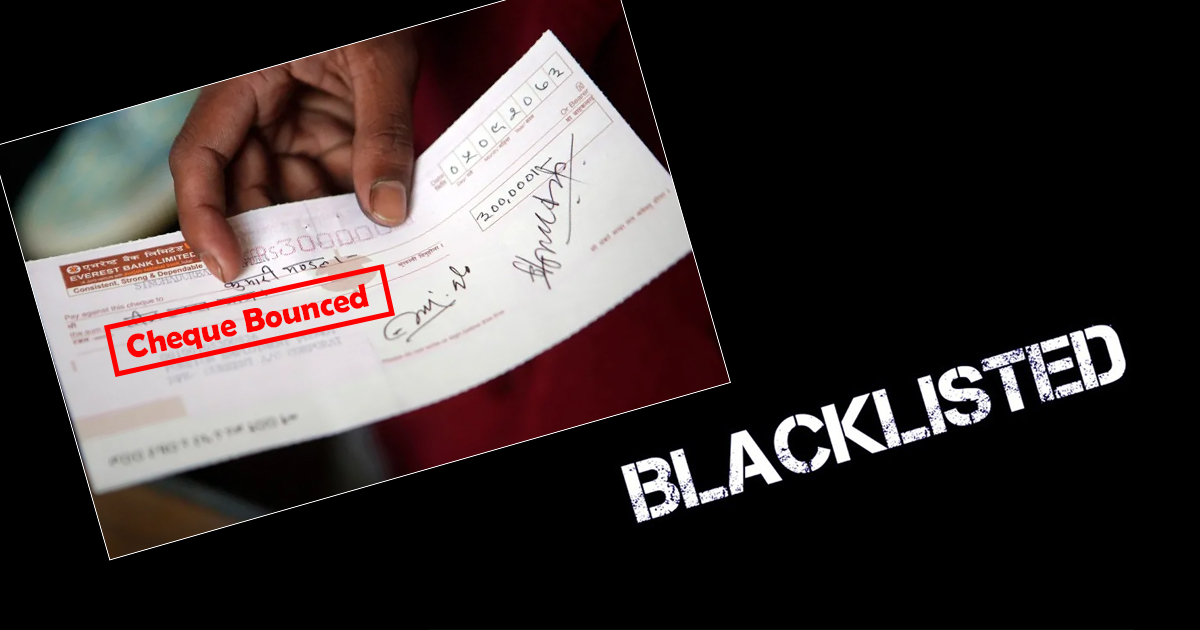Kathmandu: Banks will now be required to report bounced cheque cases to the Credit Information Center within five working days of receiving an application.
Central Bank, Nepal Rastra Bank (NRB), has amended its Unified Directives issued to banks and financial institutions to incorporate this provision.
According to the revised directive, “If an application is received to blacklist an individual, firm, company, or institution that issued a bounced cheque, the bank or financial institution concerned must report it in writing to the Credit Information Centre within five working days.”
A cheque will be listed for blacklisting if it gets bounced due to insufficient funds in the account or if the balance is insufficient to cover the payment. Additionally, if a cheque is returned for reasons other than the holder being unable to verify the accuracy of the cheque details despite sufficient balance, it will also be considered for blacklisting under NRB’s directive.
The cheque holder must file the application for blacklisting within six months from the date the cheque is bounceed. The application must include the original bounced cheque, and the application must be submitted to the bank or financial institution concerned within that six-month period.
Also, a cheque will only be treated as bounced if the cheque holder submits a request for blacklisting when a cheque is issued without sufficient funds.
NRB has issued a new procedure in 2025 titled “Procedure for Verifying Cheque Bounce”, stating that an individual will be blacklisted only upon the cheque holder’s request. “If a cheque is bounced due to insufficient or inadequate funds, the holder must submit a request to the relevant bank or financial institution to initiate the blacklisting process,” the directive states.
What happens when a cheque is returned?
If the cheque is not cleared due to a “stop payment” order issued by the account holder, the bank must give the issuer up to seven days (excluding public holidays) to make the payment and inform the holder. If the payment is not made within this timeframe, the bank must inform the Credit Information Centre in writing to blacklist the issuer and related parties, upon the request of the cheque holder.
In all cases, except when the cheque holder is able to verify the accuracy of the cheque details, the bank must notify the issuer and allow seven working days (excluding public holidays) to make the payment. If the payment is not made within the deadline, the cheque issuer and affiliated parties must be reported to the Credit Information Centre for blacklisting upon the holder’s request.
Even if the cheque is returned without payment in situations where the holder cannot verify the cheque’s authenticity, the bank or financial institution is required to certify that the cheque had indeed bounced.
If the issuer pays the full amount of a blacklisted cheque, earmarks the amount for payment, or reaches a legal settlement under prevailing laws, the person or entity can be removed from the blacklist upon notification to the bank or financial institution concerned.



Comment Here